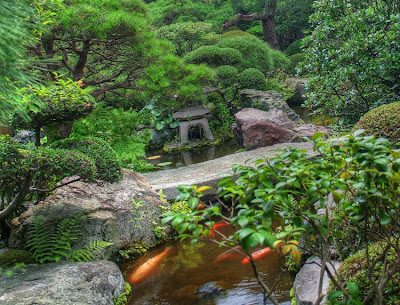Japanese classical gardens.
Author: For many years, traveling to Japan, I never cease to marvel at these manifestos values of Japanese civilization - multiplied by the simplicity of perfection, harmony in an integrated environment. A few minutes in these oases of Zen relaxes tension and clears the brain. Products painstaking work of designers and gardeners, their creation and maintenance are very expensive. It is impossible to imagine a Japan without its gardens and perhaps they in conjunction with ancient temples are the main cultural and historical landmark of the country. Sayre-ene, Nijo Castle:-jo:, Kyoto:
Tenryu-ji, Arashiyama, Kyoto
Be up to-in, Uji:
Gay Shinjuku: en, Tokyo:
Garden room in Tofuku-ji, Kyoto
Gay Shinjuku: en, Tokyo:
Tenryu-ji, Arashiyama, Kyoto
Tenryu-ji, Arashiyama, Kyoto
Gay Shinjuku: en, Tokyo:
Ginkaku-ji, Kyoto
Ginkaku-ji, Kyoto
Kodai-ji Temple, Kyoto
Okauti-Saens, Kyoto
Re: mizu-dera, Kyoto
Kyoto Garden in the hills of Ginkaku-ji:
Imperial Palace and Nidzyubasi - the famous bridge:
Walk in the Garden Koko-en, Himeji:
Minato Mirai, a new development area in Yokohama:
The roof of the temple ritual washstand Rinno-ji Temple, Nikko:
Log in Tay-Yamamoto, Tokyo lost garden:
Details roof of the temple Tosya:-gu, Nikko:
Details Garden Yamamoto-Tei, Tokyo:
Chinese pavilion in Shinjuku-Ge: en, Tokyo:
Mini pine in Shinjuku-Ge: en, Tokyo:
Harakiri-Maru, the castle of Himeji, Hyogo Prefecture:
Evening at Shinjuku, Tokyo
Matsumoto Castle, Nagano Prefecture:
Himeji Castle, Hyogo Prefecture:
Rush hour in the garden Koko-en, Himeji:
Summer Sunset in Tokyo:
Author: For many years, traveling to Japan, I never cease to marvel at these manifestos values of Japanese civilization - multiplied by the simplicity of perfection, harmony in an integrated environment. A few minutes in these oases of Zen relaxes tension and clears the brain. Products painstaking work of designers and gardeners, their creation and maintenance are very expensive. It is impossible to imagine a Japan without its gardens and perhaps they in conjunction with ancient temples are the main cultural and historical landmark of the country. Sayre-ene, Nijo Castle:-jo:, Kyoto:
Tenryu-ji, Arashiyama, Kyoto
Be up to-in, Uji:
Gay Shinjuku: en, Tokyo:
Garden room in Tofuku-ji, Kyoto
Gay Shinjuku: en, Tokyo:
Tenryu-ji, Arashiyama, Kyoto
Tenryu-ji, Arashiyama, Kyoto
Gay Shinjuku: en, Tokyo:
Ginkaku-ji, Kyoto
Ginkaku-ji, Kyoto
Kodai-ji Temple, Kyoto
Okauti-Saens, Kyoto
Re: mizu-dera, Kyoto
Kyoto Garden in the hills of Ginkaku-ji:
Imperial Palace and Nidzyubasi - the famous bridge:
Walk in the Garden Koko-en, Himeji:
Minato Mirai, a new development area in Yokohama:
The roof of the temple ritual washstand Rinno-ji Temple, Nikko:
Log in Tay-Yamamoto, Tokyo lost garden:
Details roof of the temple Tosya:-gu, Nikko:
Details Garden Yamamoto-Tei, Tokyo:
Chinese pavilion in Shinjuku-Ge: en, Tokyo:
Mini pine in Shinjuku-Ge: en, Tokyo:
Harakiri-Maru, the castle of Himeji, Hyogo Prefecture:
Evening at Shinjuku, Tokyo
Matsumoto Castle, Nagano Prefecture:
Himeji Castle, Hyogo Prefecture:
Rush hour in the garden Koko-en, Himeji:
Summer Sunset in Tokyo:





























